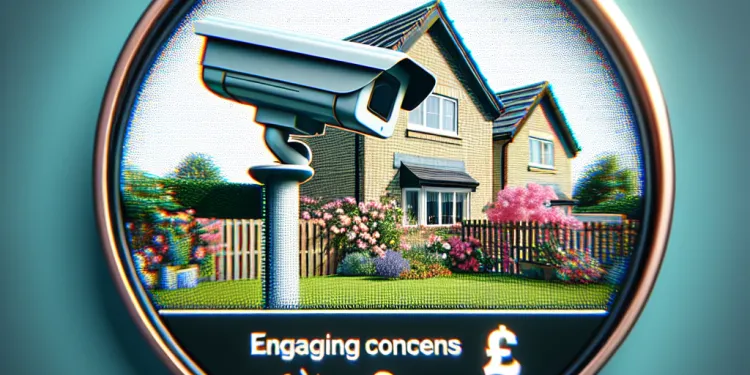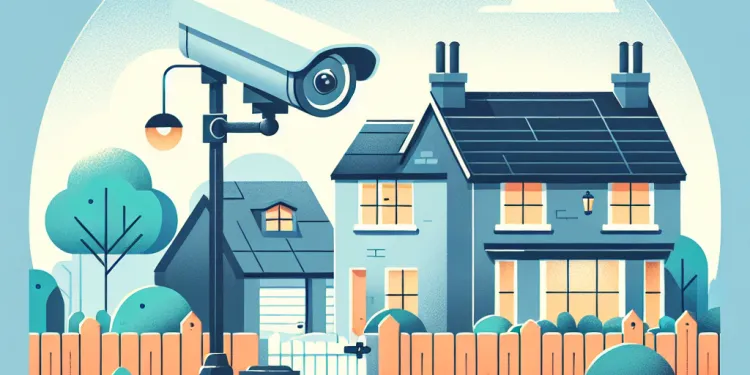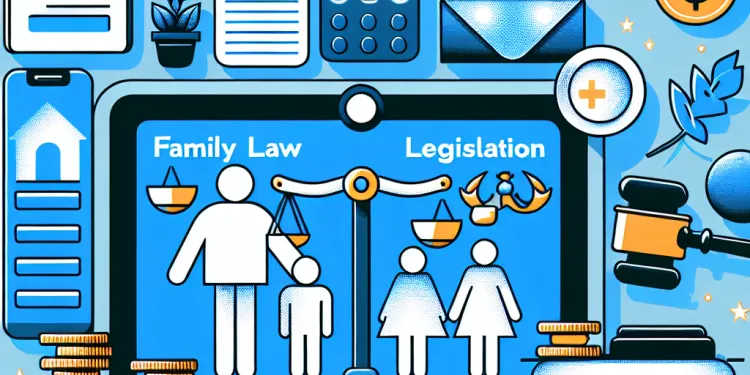
Find A Professional
More Items From Ergsy search
-

Can neighborhood associations help resolve this issue?
Relevance: 100%
-

Can I ask for legal help to get my neighbor’s camera moved?
Relevance: 85%
-

Should I contact the authorities if my neighbor refuses to adjust their camera?
Relevance: 76%
-

What should I do first if my neighbor's security camera is pointed at my property?
Relevance: 76%
-

Is it necessary to check on neighbors during a heatwave?
Relevance: 68%
-

Is it legal for my neighbor to have a security camera facing my property?
Relevance: 64%
-

What if my neighbor refuses to cooperate with any solutions?
Relevance: 64%
-

Is it legal for me to block the view of my neighbour's security camera?
Relevance: 61%
-

Owed money? - Professional UK Debt Collectors - 1st choice solution
Relevance: 60%
-

How can I ensure my solution is within legal boundaries?
Relevance: 60%
-

Are there privacy laws that protect me from neighbor's cameras?
Relevance: 58%
-

Do neighbours need to inform me if their cameras record my property?
Relevance: 53%
-

What if my neighbor claims the camera is for security but it points towards my property?
Relevance: 52%
-

Can I block the view of my neighbor's camera with physical barriers?
Relevance: 49%
-

Is mediation a viable solution?
Relevance: 45%
-

What steps can I take if my neighbour refuses to reposition their security camera?
Relevance: 45%
-

How can I stop my neighbour's security camera pointing at my property?
Relevance: 45%
-

What should I do if I feel my privacy is being invaded by my neighbour's CCTV?
Relevance: 35%
-

What is my neighbour required to do under GDPR?
Relevance: 32%
-

Is redirecting a security camera a solution?
Relevance: 31%
-

Is the video quality of a Ring Doorbell Camera good?
Relevance: 30%
-

Can I report a neighbor for using a hosepipe during a ban?
Relevance: 29%
-

How are disputes between landlords and tenants handled?
Relevance: 27%
-

Is mediation an option to resolve eviction disputes?
Relevance: 27%
-

What happens if I receive compensation for an issue, but it recurs?
Relevance: 24%
-

Peritoneal Dialysis - Information Video
Relevance: 23%
-

Addressing the Housing Crisis: Current Challenges and Solutions
Relevance: 23%
-

Is filing a formal complaint a good step?
Relevance: 22%
-

How can disputes over banking fees be resolved effectively?
Relevance: 21%
-

Does the ICO have the power to take action against my neighbour?
Relevance: 21%
-

5 Broker Exclusive Buy to Let Mortgage Lenders you need to know about as a Landlord
Relevance: 20%
-

What are the new Tenancy Law Reforms in the UK in 2025?
Relevance: 19%
-

Handling Inheritance Disputes Legally
Relevance: 18%
-

Is the physical card still valid after 2025?
Relevance: 18%
-

Can my neighbour legally point a security camera at my property?
Relevance: 18%
-

Divorce UK (England and Wales) | UK Divorce Process and Overview Explained PART 1 | BlackBeltBarrister
Relevance: 18%
-

Tackling Youth Mental Health: Community Initiatives and Solutions
Relevance: 18%
-

Addressing the Rising Homelessness Crisis
Relevance: 17%
-

Are there any contraindications for Mounjaro?
Relevance: 16%
-

Impacts of Recent Changes to Family Law Legislation
Relevance: 16%
Understanding the Issue
Dealing with an uncooperative neighbor can be a frustrating experience. When conflicts arise, such as noise complaints, boundary disputes, or disagreements over shared spaces, it is important to handle the situation diplomatically and legally. In the UK, there are steps you can follow if your neighbor refuses to cooperate with any solutions.
Initial Steps to Consider
Start by attempting to communicate directly with your neighbor. It is possible they are unaware of the issue or how it affects you. Approach the conversation with calm and clarity, explaining your perspective and proposing reasonable solutions. If face-to-face communication is difficult, consider writing a polite letter detailing the problem and how it could be resolved.
Mediation Services
If direct communication does not resolve the issue, you might consider mediation. Mediation is a process where a neutral third party helps facilitate discussion and negotiation between disputing parties. This service is often effective in neighborhood disputes and can prevent matters from escalating. In the UK, there are community mediation services available that specialize in resolving such conflicts.
Legal Advice and Action
When mediation fails or is not an option, seeking legal advice is a prudent next step. Consult with a solicitor to understand your legal standing and options. They can provide guidance on civil actions you might take, such as applying for an injunction or other legal remedies available under UK law. Be mindful that this route can be costly and time-consuming, so it's essential to weigh the benefits against the drawbacks.
Involving Local Authorities
For issues that involve health and safety concerns, such as excessive noise or environmental issues, you can involve local authorities. Local councils in the UK can investigate complaints related to noise, environmental harm, or statutory nuisances. They have the power to issue warnings and notices requiring your neighbor to address the issue.
Keeping Records
It is important to keep detailed records of all interactions and incidents related to the dispute. Having a written record of communications, attempts at resolution, and any legal or mediation involvement can be invaluable if the situation requires formal legal action. Photographs, notes, and witness statements can further support your case.
Final Thoughts
While dealing with an uncooperative neighbor can be a challenge, approaching the situation with patience, diplomacy, and knowledge of your rights can help resolve the issue. Utilizing local resources, or seeking professional legal advice can also be a step in the right direction. Regardless of the path you choose, prioritize open communication and, where possible, amicable solutions to maintain a peaceful neighborhood environment.
Understanding the Issue
Having a neighbor who doesn't want to work together can be tough. Problems might come up, like noise, fights about where your property ends, or using shared areas. It's important to handle these problems calmly and legally. In the UK, there are things you can do if your neighbor won’t help solve the problem.
Initial Steps to Consider
First, try talking to your neighbor. They might not know there's a problem or that it bothers you. Speak calmly and clearly, share your view, and suggest fair solutions. If talking face-to-face is hard, you can write a polite letter explaining the problem and how you think it can be fixed.
Mediation Services
If talking doesn't work, you could try mediation. Mediation is when a neutral person helps both sides talk and find a solution. It's useful for neighborhood problems and can stop things from getting worse. In the UK, you can find community mediation services to help solve these disputes.
Legal Advice and Action
If mediation doesn’t help or isn’t possible, you might need legal advice. Talk to a solicitor to know your rights and what you can do legally. They can tell you about actions you can take, like asking a court to help. Remember, legal steps can be expensive and take time, so think about the pros and cons carefully.
Involving Local Authorities
If the problem is about health and safety, like too much noise or harming the environment, you can tell local authorities. In the UK, local councils can check complaints about noise and other nuisances. They can give warnings to your neighbor to fix the problem.
Keeping Records
Make sure to write down everything about the problem. Keep notes of talks, letters, and any mediation or legal steps. Taking photos and getting witness statements can also help if you need to take formal legal action.
Final Thoughts
Having problems with a difficult neighbor can be hard. But being patient, knowing your rights, and using resources can help solve it. You might need legal advice, so don’t hesitate to seek help. Always try to talk openly and find friendly solutions to keep the peace in your neighborhood.
Frequently Asked Questions
Useful Links
- Ergsy carfully checks the information in the videos we provide here.
- Videos shown by Youtube after a video has completed, have NOT been reviewed by ERGSY.
- To view, click the arrow in centre of video.
- Most of the videos you find here will have subtitles and/or closed captions available.
- You may need to turn these on, and choose your preferred language.
- Go to the video you'd like to watch.
- If closed captions (CC) are available, settings will be visible on the bottom right of the video player.
- To turn on Captions, click settings .
- To turn off Captions, click settings again.
More Items From Ergsy search
-

Can neighborhood associations help resolve this issue?
Relevance: 100%
-

Can I ask for legal help to get my neighbor’s camera moved?
Relevance: 85%
-

Should I contact the authorities if my neighbor refuses to adjust their camera?
Relevance: 76%
-

What should I do first if my neighbor's security camera is pointed at my property?
Relevance: 76%
-

Is it necessary to check on neighbors during a heatwave?
Relevance: 68%
-

Is it legal for my neighbor to have a security camera facing my property?
Relevance: 64%
-

What if my neighbor refuses to cooperate with any solutions?
Relevance: 64%
-

Is it legal for me to block the view of my neighbour's security camera?
Relevance: 61%
-

Owed money? - Professional UK Debt Collectors - 1st choice solution
Relevance: 60%
-

How can I ensure my solution is within legal boundaries?
Relevance: 60%
-

Are there privacy laws that protect me from neighbor's cameras?
Relevance: 58%
-

Do neighbours need to inform me if their cameras record my property?
Relevance: 53%
-

What if my neighbor claims the camera is for security but it points towards my property?
Relevance: 52%
-

Can I block the view of my neighbor's camera with physical barriers?
Relevance: 49%
-

Is mediation a viable solution?
Relevance: 45%
-

What steps can I take if my neighbour refuses to reposition their security camera?
Relevance: 45%
-

How can I stop my neighbour's security camera pointing at my property?
Relevance: 45%
-

What should I do if I feel my privacy is being invaded by my neighbour's CCTV?
Relevance: 35%
-

What is my neighbour required to do under GDPR?
Relevance: 32%
-

Is redirecting a security camera a solution?
Relevance: 31%
-

Is the video quality of a Ring Doorbell Camera good?
Relevance: 30%
-

Can I report a neighbor for using a hosepipe during a ban?
Relevance: 29%
-

How are disputes between landlords and tenants handled?
Relevance: 27%
-

Is mediation an option to resolve eviction disputes?
Relevance: 27%
-

What happens if I receive compensation for an issue, but it recurs?
Relevance: 24%
-

Peritoneal Dialysis - Information Video
Relevance: 23%
-

Addressing the Housing Crisis: Current Challenges and Solutions
Relevance: 23%
-

Is filing a formal complaint a good step?
Relevance: 22%
-

How can disputes over banking fees be resolved effectively?
Relevance: 21%
-

Does the ICO have the power to take action against my neighbour?
Relevance: 21%
-

5 Broker Exclusive Buy to Let Mortgage Lenders you need to know about as a Landlord
Relevance: 20%
-

What are the new Tenancy Law Reforms in the UK in 2025?
Relevance: 19%
-

Handling Inheritance Disputes Legally
Relevance: 18%
-

Is the physical card still valid after 2025?
Relevance: 18%
-

Can my neighbour legally point a security camera at my property?
Relevance: 18%
-

Divorce UK (England and Wales) | UK Divorce Process and Overview Explained PART 1 | BlackBeltBarrister
Relevance: 18%
-

Tackling Youth Mental Health: Community Initiatives and Solutions
Relevance: 18%
-

Addressing the Rising Homelessness Crisis
Relevance: 17%
-

Are there any contraindications for Mounjaro?
Relevance: 16%
-

Impacts of Recent Changes to Family Law Legislation
Relevance: 16%